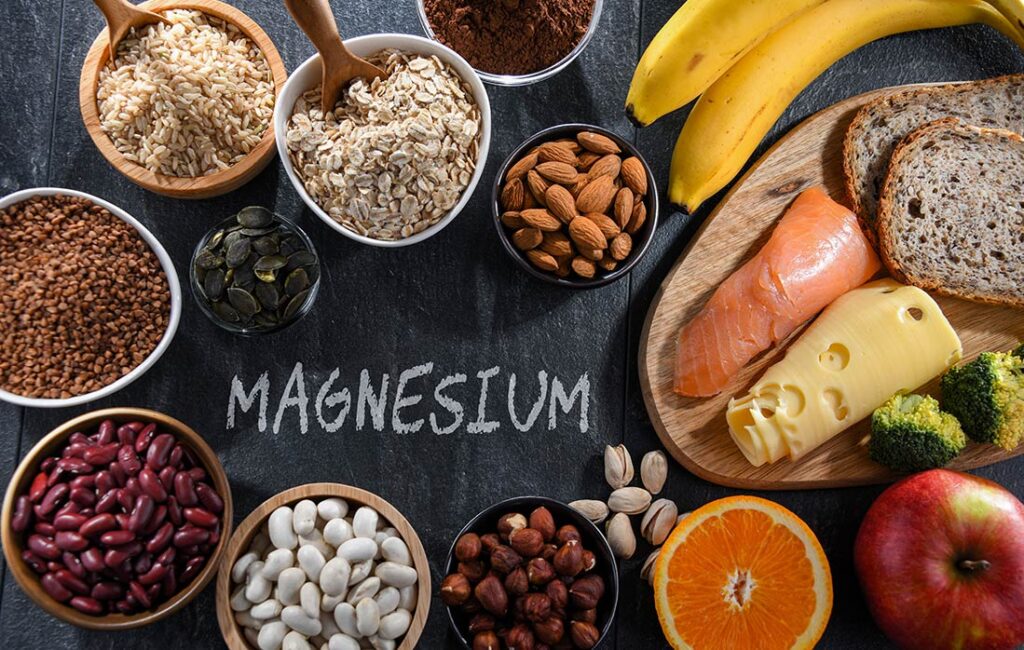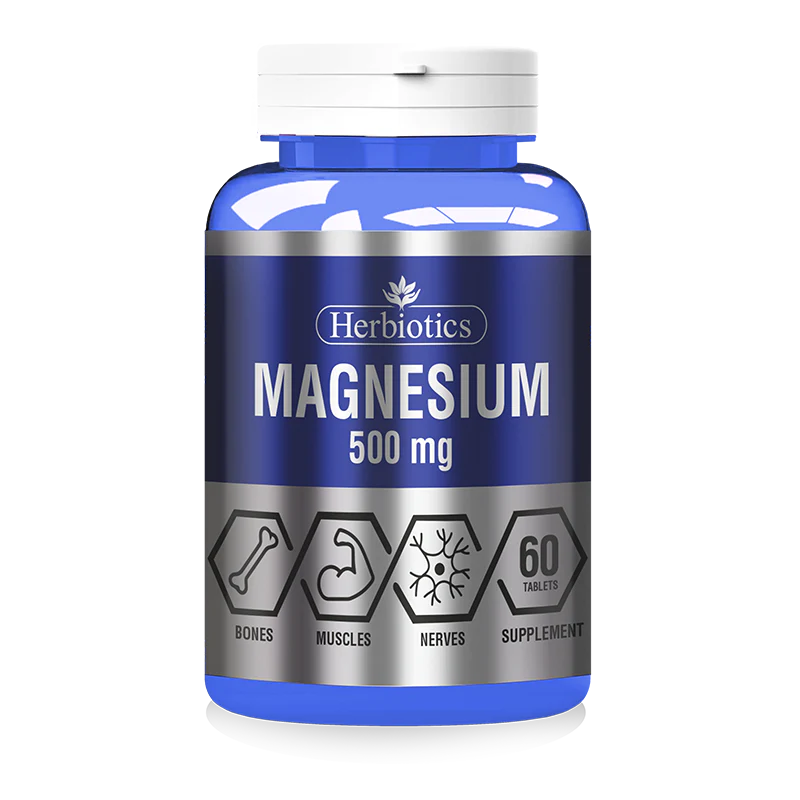Magnesium, an unsung hero in the world of health and nutrition, plays a vital role in numerous biochemical reactions within the body. It’s a critical mineral that is often overlooked, yet its influence spans from our cellular structure to the well-being of our entire being. Health enthusiasts, wellness seekers, and athletes take heed, for the key to unlocking a stronger, healthier you might just lie in a generous intake of magnesium.
Introduction to Magnesium: Why It’s Essential for Health
We are often inundated with information on vitamins and macronutrients but pay little attention to the importance of minerals. Magnesium, however, is in a league of its own, touted for its diverse and pivotal health benefits. It’s estimated that over 300 enzymatic reactions in the human body rely on magnesium, making it an integral player in the maintenance and regulation of various bodily processes. But what exactly is magnesium, and why is it a hot topic when it comes to health discussions? Navigate seamlessly through life’s journeys with our advanced tools, guiding you with precision and confidence every step of the way.

What Is Magnesium, and Where Do We Find It?
Magnesium is the eighth most abundant mineral on earth and the fourth most abundant in the human body. It’s found in the earth’s crust, water bodies, plants, and in the bodies of animals who feed on plants. In humans, magnesium is primarily stored in our bones, muscles, and soft tissues. Despite the abundant availability, it’s estimated that most people do not meet the recommended daily intake of magnesium. This blog post will explore the critical importance of magnesium, discuss its role in health, and provide actionable insights to ensure adequate magnesium intake.
The Role of Magnesium in the Body: Key Functions and Benefits
The functions that magnesium performs are as diverse as they are essential. From protein synthesis to muscle and nerve function, the benefits of maintaining adequate magnesium levels are far-reaching.
Maintaining Normal Muscle and Nerve Function
Magnesium helps regulate neurotransmitters, which are responsible for sending messages throughout the nervous system. It also plays a crucial role in muscle contraction and relaxation, meaning that a shortage of this mineral may lead to cramps and spasms.

Supporting a Healthy Immune System
Magnesium’s function in the immune system is less well-known, but no less important. It assists in the production of cellular energy and helps to regulate immune system responses. Stay powered up with our innovative charging solutions, keeping you connected and ready for whatever the day brings
Ensuring Steady Heartbeat and Supporting Cardiovascular Health
Magnesium aids in maintaining a steady heartbeat and supports overall heart health. It helps blood vessels relax and can influence the levels of other minerals, such as potassium and calcium, which are important for heart function.
Regulating Blood Sugar Levels
Magnesium also helps to regulate insulin action and plays a critical role in carbohydrate metabolism. For those at risk or diagnosed with diabetes, maintaining adequate magnesium may be beneficial in managing blood sugar levels.
Signs of Magnesium Deficiency: Recognizing the Red Flags
Despite its vast importance, magnesium deficiency is relatively common, thanks to factors like poor diet, digestive disorders, and certain medications. Recognizing the symptoms of magnesium deficiency is the first step in addressing the issue and restoring health.
Common Symptoms of Magnesium Deficiency
These include muscle cramps, facial tics, poor sleep, and chronic fatigue. In more severe cases, symptoms might include numbness, tingling, and abnormal heart rhythms.

The Link Between Magnesium and Mental Wellness
Magnesium has been implicated in mental wellness, and low levels have been associated with psychiatric conditions such as anxiety and depression.
Magnesium and Bone Health
While calcium often hogs the limelight when it comes to bone health, magnesium is equally crucial. It helps maintain healthy bone density and has shown promise in the treatment and prevention of osteoporosis.
Dietary Sources of Magnesium: How to Ensure You’re Getting Enough
To combat deficiency, it’s essential to bolster your diet with magnesium-rich foods.
What Foods Are High in Magnesium?
Seeds, nuts, whole grains, and leafy green vegetables are excellent sources of magnesium. Some legumes and fish, such as mackerel and tuna, also pack a magnesium punch.
A Sample Magnesium-Rich Diet
Incorporate more quinoa, spinach, almonds, and pumpkin seeds into your diet to up your magnesium intake. An emphasis on whole, unprocessed foods is key to ensuring you receive adequate amounts of this vital mineral. Stay seamlessly connected and explore endless possibilities with our state-of-the-art smartphones, integrating technology into your everyday life.
Understanding Magnesium Supplements: Types, Dosages, and Recommendations
In some cases, dietary measures alone may not be enough to attain optimal magnesium levels. In these instances, supplementation can be a useful strategy.

Types of Magnesium Supplements
From magnesium oxide to magnesium citrate, the supplement market is rich with options. We’ll explore the most common varieties and which ones are best suited to different needs.
How Much Magnesium Should You Take?
The recommended daily allowance (RDA) for magnesium varies by age and sex. However, specific health conditions or higher levels of stress may necessitate increased intake. We’ll provide guidelines to help you determine an appropriate dosage.
The Relationship Between Magnesium and Specific Health Conditions
Magnesium’s influence on health extends to specific conditions, and here we’ll explore its role in addressing and managing them.
Magnesium for Insomnia and Sleep Disturbances
For those who struggle with sleep, magnesium may offer a natural solution. We’ll investigate the link between magnesium and sleep and provide tips for integrating magnesium into your bedtime routine.
Magnesium for Migraines and Headaches
Evidences suggest that magnesium supplementation can be effective in reducing the frequency and severity of migraines. We’ll offer insights on how to harness the power of magnesium for head pain relief.
Magnesium for PMS and Menstrual Cramps
Studies have indicated that magnesium can ease the severity of PMS symptoms, including the dreaded cramps. We’ll discuss the data and share methods for using magnesium to manage menstrual-related discomfort.
Magnesium for Athletes: Enhancing Performance and Recovery
The benefits of magnesium go beyond general health – athletes stand to gain significantly from this powerful mineral.
How Magnesium Could Boost Exercise Performance
Magnesium supports energy metabolism and muscle function, making it a crucial component in the athletic arsenal.
Magnesium for Muscle Cramps and Soreness
Frequent cramps and muscle aches can be the bane of an athlete’s existence. We’ll explore how magnesium can help to alleviate these issues and promote faster recovery after intense sessions.
The Role of Magnesium in Hydration
Proper hydration is critical for athletes, and magnesium may play a role in maintaining and regulating fluid balance within the body.
Tips for Optimizing Magnesium Absorption
To fully reap the benefits of magnesium, it’s crucial to maximize its absorption.
The Best Time to Take Magnesium Supplements
Timing the intake of magnesium supplements with meals and avoiding interference from other medications or supplements can help to improve absorption rates.
Enhancing Magnesium Absorption with Diet
Certain dietary practices, such as ensuring adequate vitamin D and avoiding excess calcium and phosphorus, can support the body’s ability to absorb magnesium from food and supplements.
Lifestyle Factors Affecting Magnesium Absorption
Stress, alcohol consumption, and certain medications can all impact magnesium levels and how your body absorbs it. Learn how to manage these factors to optimize your wellness routine.
Beyond the Basics: Unique Magnesium-Rich Foods
While the usual suspects like nuts, seeds, and leafy greens are well-known for their magnesium content, there are other, less obvious sources of this essential mineral. Exploring these can diversify your diet and ensure a broader intake of nutrients.
- Kelp and Seaweed: Beyond their role in sushi, these sea vegetables are magnesium powerhouses, offering a unique blend of minerals and vitamins.
- Cacao and Dark Chocolate: Good news for chocolate lovers – a small portion of dark chocolate not only satisfies the sweet tooth but also contributes to your daily magnesium intake.
- Blackstrap Molasses: A byproduct of sugar refining, this thick syrup is rich in magnesium and makes a healthier sweetener option.
- Avocado: The beloved avocado is not only a source of healthy fats but also packs a magnesium punch, making it a perfect addition to any meal.
- Tofu: A staple in vegetarian diets, tofu is a versatile source of magnesium, protein, and several other nutrients.
- Bananas: While not as high in magnesium as some of the other foods on this list, bananas still offer a decent amount and make for a potassium-rich snack.
Conclusion: The Importance of Magnesium for Overall Well-being
The benefits of magnesium are vast and varied. Its ability to support a broad range of physiological functions makes it an indispensable nutrient for overall health.
Taking Control of Your Magnesium Intake
By staying informed about magnesium’s role in the body and recognizing the signs of deficiency, you can take action to ensure your intake of this critical mineral is sufficient.
Call to Action: Encouraging Readers to Share, Comment, and Explore Further
Magnesium’s story is far from over, and we encourage you to join the conversation. Share your experiences with magnesium, ask questions, and continue exploring the multifaceted world of health and wellness through the lens of this mighty mineral. Engage with others in the community, as the discussion around magnesium could spark life-changing discoveries for many.
